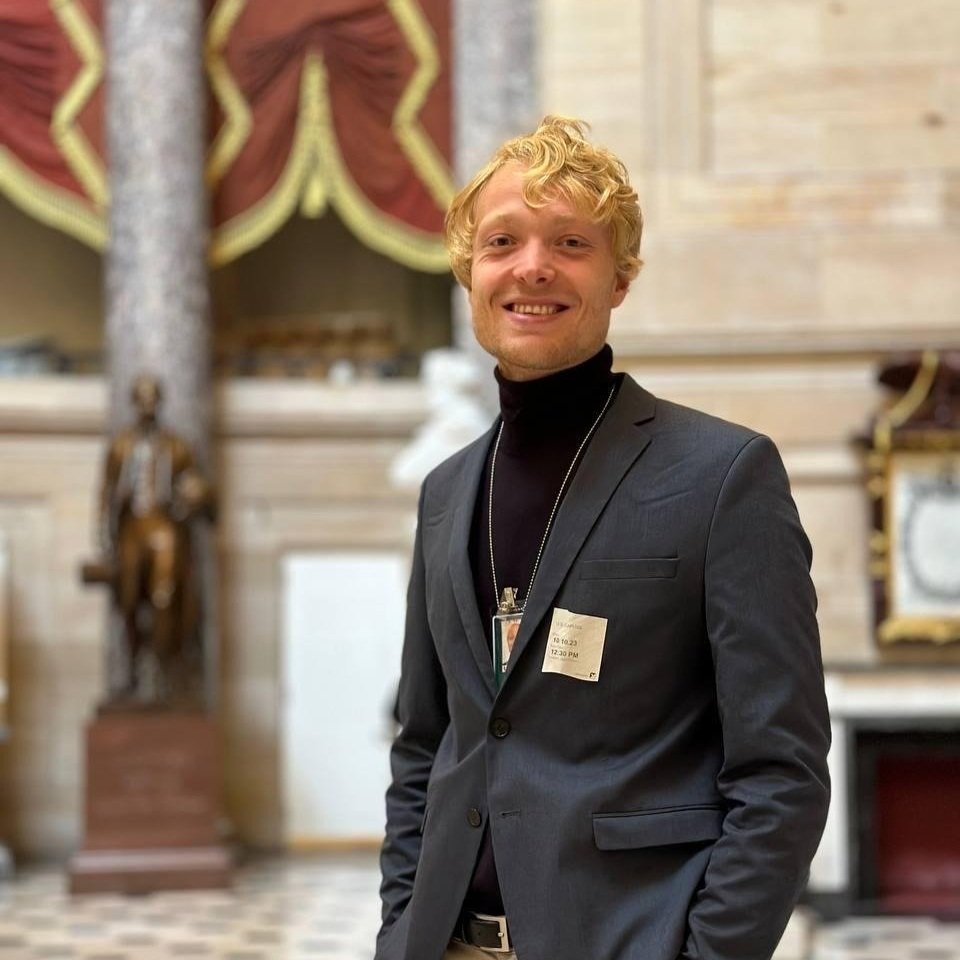Named after Tom Lantos, who initially arrived in the United States on a scholarship and later became a professor, the Lantos Congressional Fellows program honors his deep-seated belief in the power of education and the value of life-long learning.
Lantos Fellows are carefully chosen from a select group of post-college and post-graduate level students from Europe and Israel. Through fellowships hosted by U.S. congressional offices, they have the opportunity to work in the United States and gain a better understanding of the role of human rights in American politics and the legislative process.
More than 100 fellows have participated in the program from countries including Belgium, Bosnia-Herzegovina, Denmark, France, Germany, Greece, Hungary, Ireland, Israel, Italy, the Netherlands, Norway, Scotland, Sweden, Turkey and the United Kingdom. Nearly 50 congressional offices have hosted Lantos Fellows, and the program is fully bipartisan – both Republican and Democratic offices host Lantos Fellows.
Janne Linder is a German national who is midway through a Masters Program in International Studies and Peace/Conflict Resolution. He has professional international relations NGO experience in research and has experience in both the German Parliament and Parliamentary elections. Janne spent a gap year in South Africa working on children’s issues and remains committed to education, particularly civic education.
City/Country of Origin: Essen, Germany
Languages Spoken: German, English, Portuguese, French
University Degrees: BA in Political Science and History from the Ruprecht-Karls-Universitat Heidelberg, Masters Program “International Studies/Peace and Conflict Research” from Goethe-Universitat Frankfurt am Main (in progress).
Top Professional Experiences/Achievements: I have been engaged in civic education for six years, giving workshops and hosting political simulation games in schools. I’ve worked in the German Bundestag for a Parliamentarian of the Green Party who was a member of the committee for Human Rights at that time. I have worked for the German television broadcaster ZDF and a federal election campaign for the Green Party. I received a study scholarship from the protestant education institute Villigst Evangelisches Studienwerk.
Tom Lantos always believed that human rights should transcend partisan politics. Do you believe this is still possible, even in a political climate with such deep partisan divisions? If so, how do you believe we can bring people together over key human rights issues? Unfortunately, I believe this is no longer possible in the American context. The GOP has turned out to be a White Supremacist party that has lost its traditional political compass. This development is not solely linked to the person of Trump. The disgust for democratic processes and the American constitution, as well as the general lack of political orientation of the Republican party, unloads itself in a misanthropic mindset. This seems unable to connect with the nonpartisan humanity ideal that Human Rights advocates try to pursue. Two things seem particularly relevant to me for human rights advocacy at the moment: the ability to adopt perspectives that are not your own -- and the realization that no group’s human rights should be given priority to, but that a decent life for all requires a combination of different human rights.
What will you miss the most from your native country while you are living in America? A very German answer to that question would be "bread without sugar.” Apart from that, I enjoy being away from my usual contexts, but I also miss my partner, friends, and family. For the third part, I have to say in advance that a lot of people in DC that I have met presume that a lot of things are somehow better in Germany and that I will feel that the US is somehow dysfunctional. But I don't feel that way! The biggest difference I might feel is that the US lacks a moral consensus on the need to reduce food and packaging waste, as well as to severely change the way we should feed ourselves.
If you could have dinner with any human rights figure (living or deceased), who would it be? What would you talk about or what would you ask them? I see it as a life task to keep the memory of the Shoah and the Nazi regime in my country relevant and alive. The far-right party is again at 20% in polls and that scares me and makes me angry. In this somewhat bizarre counterfactual scenario, I would therefore appreciate meeting eyewitnesses of this dark period in German and European history. My father's work as a priest is highly inspired by the writings of the liberal theologist Dietrich Bonhoeffer who was killed in a concentration camp in the last weeks of the Third Reich. To meet him would be fascinating, as well as meeting the most important female philosopher of the 20th century, Hannah Arendt (There is only one human right: the right to have rights), or her companion Walter Benjamin.
What do you hope to learn or gain from your time as a Lantos Fellow? Being in the US for the first time, I hope to gain a sense of the Western transatlantic relationship from the other side. This impacts various things: the understanding of the relevance and nuances of advocacy for Human Rights; the inner functioning of the political system; how to live a life; understanding of core values such as justice, freedom, and equality; and how different Western societies tackle their histories and the injustices and violence that lay within them. I hope to see as much of the US as possible and to never get bored and too accustomed to the exceptional gift to get up every day, to cycle to the Capitol, and to go to work.

